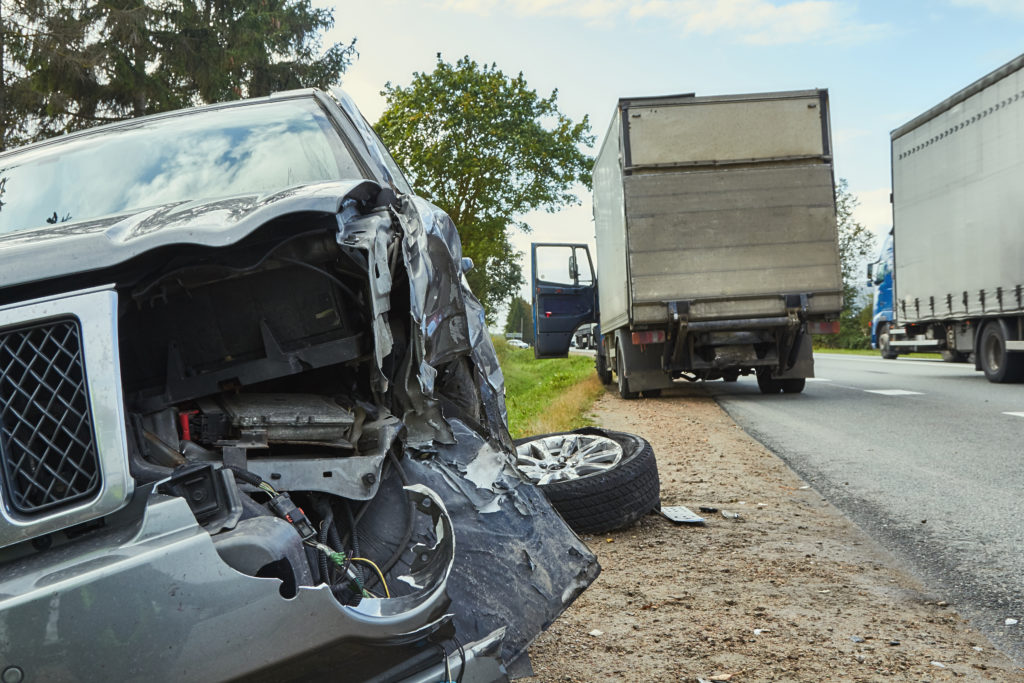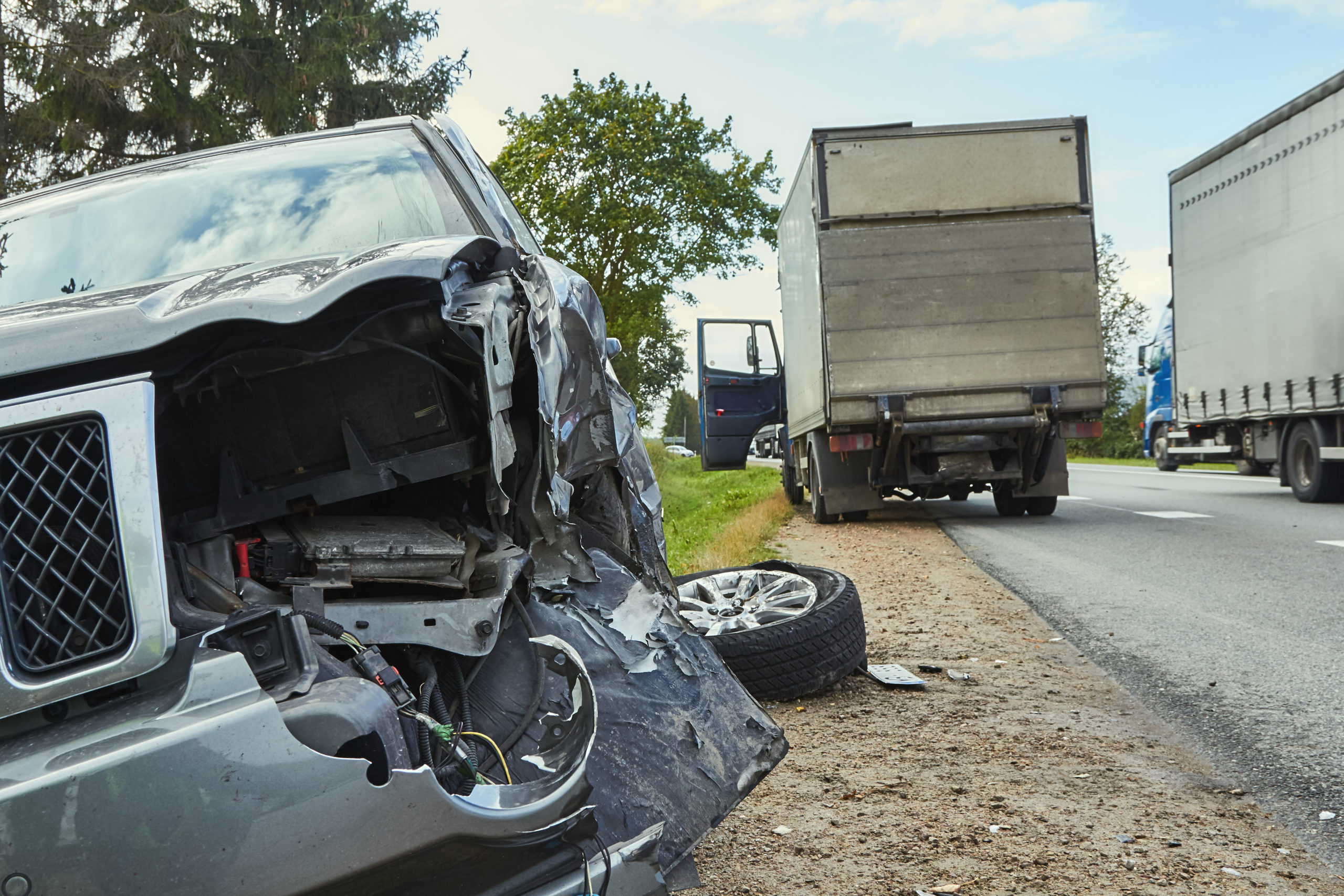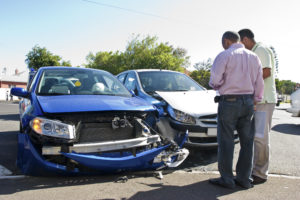Written By:
 Salvatore Nuzzo
Salvatore Nuzzo
Your Dedicated & Trusted Legal Team
3 Generations & 100+ Years of Combined Legal Experience
The trucking industry is an enormous enterprise. Close to 70% of all goods delivered to market are transported by tractor trailers, making it a powerful political entity. Lobbying efforts focus on changes that benefit truckers, namely longer hours, larger cargo limits, and higher speed limits. All of these changes come with an incremental cost that is not calculated only in dollars, but also in highway deaths and injuries.
Today, roughly 15.5 million trucks operate in the U.S. Of this figure about 2 million are tractor trailers, with 53 million trailers moving cargo across the country. Some of these truckers are working long hours and driving long distances to meet the demand caused by supply chain issues, driver shortages, and the struggle to transition back to a pre-pandemic normal. Newer, less experienced truck drivers are being hired to help address these new challenges, but all of these realities facing the industry can come at the expense of the long-held standard that professional truck drivers exhibit a higher standard of care than the standard of reasonable care required by other drivers.
When accidents occur between cars and tractor trailers, they are usually catastrophic in nature, with significant damages and injuries. That’s because a truck with a single trailer is approximately 53 feet in length, while “piggy back” or double trailer trucks can be as much as 90 feet long, dwarfing most of the other vehicles they share the road with. These trucks also far outweigh the average passenger car, which at 4,000 pounds is no match for a tracker trailer that can weigh up to 80,000 pounds.
The automotive industry’s trend toward manufacturing more fuel-efficient, compact and lighter vehicles will only increase this imbalance. Even today, some of the smaller passenger vehicles can fit under the trailer of a truck.
You should also know that trucks lack maneuverability, making certain actions like a swift lane change difficult or impossible. In fact, any effort to take sudden corrective measures could result in load shifts, trailer sways, and rollover accidents.
Given that sharing the road with trucks has its risks, the most important thing you can do is heighten your awareness when driving near them and practice ‘road courtesy’. Do not challenge these larger vehicles by suddenly cutting in front of them and anticipate that they have blindspots if you are coming up from behind them. In short, drive with extra caution.
If you get into an accident with a tractor trailer, there are some insurance issues unique to trucking companies. For one, they notoriously move their vehicles around the country. A truck whose homebase may be Houston could be rerouted to Dallas where repairs can be completed before your insurance adjuster can get out and inspect the vehicle.

Equipment such as “black boxes” can be changed out of a truck involved in a crash. Similarly, driver logs can be altered. Such evasive tactics are used because trucking companies try to keep their commercial insurance premiums affordable and carry large deductibles. For example, it’s not unusual for a trucking company to be responsible for the first $25,000 or $50,000 of damages before their insurance kicks in. Understandably, lower insurance costs help to keep them in business, but can pose problems for the person involved in an accident with a truck.
These claims require legal representation so that an attorney can immediately begin a dialogue with the truck’s owner and request (in writing) that all vehicles are secured until inspections can be completed. Violations of these requests have legal consequences. An attorney will reach out to truck accident experts and can help protect your rights to inspect the truck, its maintenance records, and driver logs. They will get statements from all drivers involved, as well as any witnesses, and secure any video footage that may have captured the incident, or moments leading up to it.
An attorney is also important during the recovery phase. You need to know who will pay for your damages. It could simply be the driver if the driver is the owner of the tractor and trailer, they load and unload the cargo, and maintain the rig. In other cases though, you may be able to go after the trucking company, the driver, the entity that loaded the cargo, the facility that does maintenance or repairs, and in some cases a truck or parts manufacturer for defects or inferior design. It’s the attorney’s job to sift through the facts of your case to rule out the people or companies that have no responsibility and seek compensation from those that do.
Because these types of injury claims are typically severe, the resolution could occur years down the road, once your attorney is satisfied that the physical and emotional injuries have been resolved and all residual issues are identified. From an insurance perspective, issues are either resolved or have reached a point where resolution is not possible. The hard work during the earliest stages post-accident could solidify the position of your claim. Conversely, if not done–or done improperly–your claim can be compromised.
No matter how obvious it appears that the trucker is the responsible party, corporations will gladly pay large amounts of money to hire defense teams whose sole purpose is to lessen the damages and change the narrative of the accident. You should not consider yourself on a level playing field. A common strategy is to extend litigation and outspend you, a tactic that is not likely to succeed if you are represented by an attorney.

 Salvatore Nuzzo
Salvatore Nuzzo
About The Author
Salvator Nuzzo has spent more than 30 years as an insurance adjuster for various major insurers. Throughout his career, he has handled an estimated 8,000 claims.
Read MoreLatest from Our Blog



Editorial Standards
Rosenblum Law is committed to delivering informative content of the highest quality. All content is subject to our rigorous editorial standards for relevance, accuracy, sourcing, and objectivity. Everything is fact-checked by an editor and reviewed for legal soundness by one of our practicing attorneys prior to being published.
How to Cite Rosenblum Law’s Article
APA
Salvatore Nuzzo (Nov 18, 2021). 14 Ways to Get the Most from Your Accident Claim. Rosenblum Law Firm, https://rosenblumlaw.com/14-ways-to-get-the-most-from-your-accident-claim/
MLA
Salvatore Nuzzo "14 Ways to Get the Most from Your Accident Claim". Rosenblum Law Firm, Nov 18, 2021. https://rosenblumlaw.com/14-ways-to-get-the-most-from-your-accident-claim/
